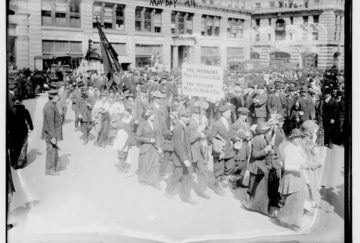 Mike Konczal in Boston Review:
Mike Konczal in Boston Review:
The workplace has been a central battleground in the debate over freedom. On the clock, bosses tell us how to act and what to do, even around basic bodily functions: workers can be told when they can use the bathroom. Bosses also exert a significant amount of control over our personal lives, dictating limits on speech and our political actions. Governments can imprison us for breaking their rules; bosses can fire us, depriving us of the basic resources we need to live. Unlike our democratic form of public government, the workplace subjects us to, in the words of philosopher Elizabeth Anderson, a kind of private government, with no presumption of fairness, accountability, or even regularity—a despotic state in miniature. Leaving our job is no check on this despotic tendency. People know this, which is why for centuries American workers have demanded more than the power to quit. As much as fair wages and safe working conditions, workers have also demanded safeguards over their time.
There have always been workers who demanded limits on working hours to accommodate everything else that they needed time for. They understood that if they didn’t have free time, they couldn’t have the kinds of relationships and commitments they needed to lead free and full lives. This is a story almost as old as the United States itself. In May 1835 a group of carpenters, masons, and stonecutters in Boston wrote and released the “Ten-Hour Circular,” a short document demanding a ten-hour workday. “The God of the Universe has given us time, health, and strength. We utterly deny the right of any man to dictate to us how much of it we shall sell.” The circular’s description of the system as “odious, cruel, unjust, and tyrannical” and of bosses forcing a worker “to exhaust his physical and mental powers by excessive toil, until he has no desire but to eat and sleep, and in many cases he has no power to do either” resonated with workers, especially those new to waged labor. Citizens left in a worn-out state of exhaustion could not be “friends to the country or the Rights of Man,” nor could they meet their “duties to perform as American Citizens and members of society.”
More here.
